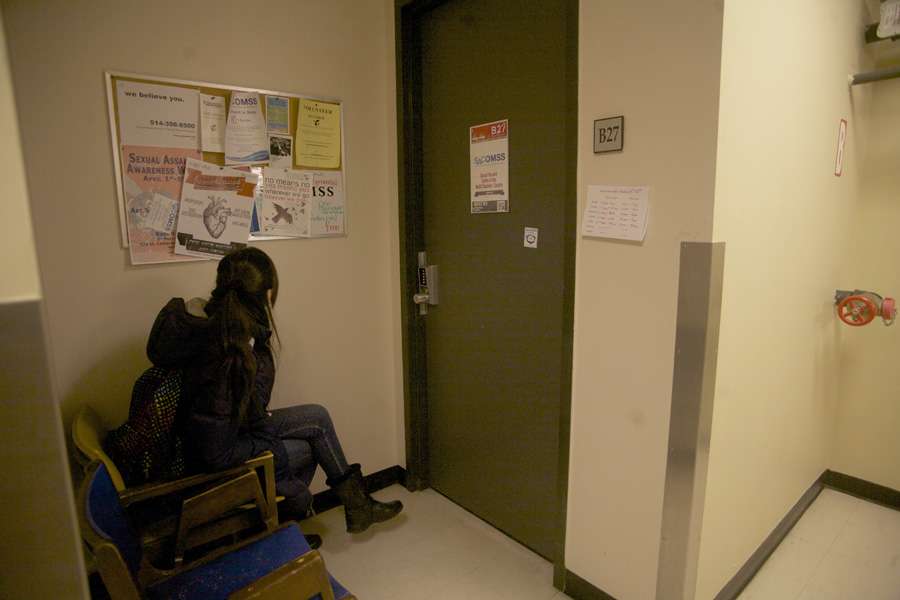A sexual assault policy proposed by students was the focus of a workshop last Thursday. The workshop was part of Sexual Assault Centre of the McGill Students’ Society’s (SACOMSS) annual Sexual Assault Awareness Week.
Publicized on March 21, the proposed policy was drafted by eight campus groups, including SACOMSS, the Union for Gender Empowerment (UGE), and the Students’ Society of McGill University (SSMU), following McGill’s Feb. 26 Forum on Consent.
The proposed policy includes provisions on campus-wide awareness campaigns and education, such as awareness training for organizers of events where high incidences of sexual assault are reported. It also calls for the policy to be made accessible online.
Students at the event asked for clarification on portions of the proposal that recommended that perpetrators of alleged sexual assault be immediately subject to measures such as suspension from campus and removal from positions of power.
“If the perpetrator is in any positions of power, [such as a] faculty member, professor emeritus, member of the administration, coach, etc., they shall be removed from it,” the document reads. “This shall be done before any legal proceeding is complete and can be done as a suspension as to not interfere with external legal process.”
Students expressed concern regarding the legality of such measures and the presumption of “guilty until proven innocent” that they seemed to carry.
In response, UGE member Kai O’Doherty clarified that the specifics of the document had yet to be determined.
“We don’t know yet what [specific measures] would look like, but [we believe] the university does have jurisdiction over what happens on campus, and can take measures like these […] so as to prevent perpetrators’ access to survivors,” O’Doherty said. “[The measures] will be made in a way that does not interfere with external legal processes.”
Another facilitator of the event, Anaïs Cadieux van Vliet, stressed the importance of these measures.
“[They] are part of making [a] sexual assault policy [that focuses] on supporting survivor experiences,” Cadieux van Vliet said.
Attendees said the workshop was useful for clarifying the intent and meaning behind the individual clauses of the lengthy policy, which stands at eight pages with an 11-page appendix.
“It’s a daunting document [on] an obviously really complicated issue, so I appreciated getting clarification on why [the terms] look the way [they do],” Lillie Fradin, U1 Arts, said. “It [became] clear to me that McGill needs a sexual assault policy that is accessible as well as functional for the entire McGill community.”
According to Cadieux Van Vliet, the students behind the policy want to expand the conversation about McGill’s services and policy procedures surrounding sexual assault.
“It’s important to have a campus-wide discussion about what good [sexual assault] services [and] policy procedures [look] like, so in order to get that conversation started, we drafted this policy [proposal],” Cadieux Van Vliet said.
The proposal most go through consultation by the Senate’s policy committee before becoming a formal policy of the university.
There is currently also an online petition asking for endorsements for the policy proposal.









